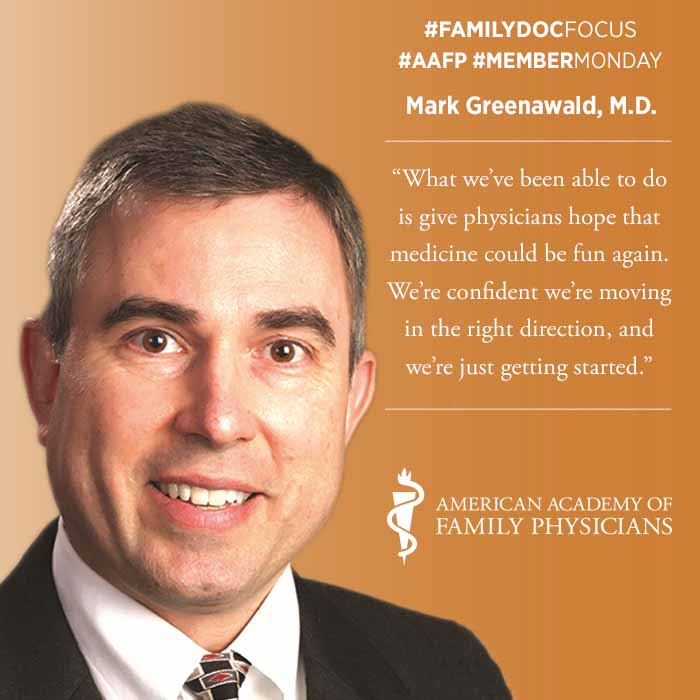Burnout Survivor Strives to Help Peers
March 26, 2018 12:22 pm David Mitchell – Mark Greenawald, M.D., was crying on the side of the road when he realized how bad things had gotten.
"My wife said, 'It's time to get help,'" Greenawald said.
Greenawald had just been ticketed for speeding, but the fine wasn't what upset him. In that moment, the cumulative effect of sheer exhaustion, isolation, and the unresolved grief and shame he had been carrying from the loss of an obstetrics patient a year earlier released all at once.
"There was nothing I could have done that would have made the outcome different," he said of the patient, "but that didn't change my emotional reaction."
In 2000, physician burnout wasn't the hot topic it is today, but Greenawald was experiencing it. He was faculty at a residency program, providing obstetric care and on call every fourth night. And his family had three young children.
Reluctantly, he heeded his wife's advice.
"Just the process of asking for help was pivotal for me," Greenawald said.
A therapist offered insights and asked two critical questions: "Your life is pretty crazy, and you are pretty driven," she said. "How is that working out for you? Is this the life you want to live?'"
His answers were "not well" and "no."
So, Greenawald altered his practice to find balance and improve relationships. By 2003, he was facilitating workshops on physician well-being.
"I rediscovered the love I had for medicine and life," he said. "I wanted to make sure no one spent the amount of time I spent isolating myself."
Greenawald is speaking today at the AAFP's Residency Program Solutions conference in Kansas City, Mo., and he will be a featured speaker during the Family Physician Health and Well-Being Conference April 18-21 in Naples, Fla.
Greenawald, vice chair for academic affairs at the Carilion Clinic Department of Family and Community Medicine in Roanoke, Va., is working to prevent burnout in his own health system, too. His department formed a committee to address burnout two years ago. At that time, 61 percent of its family physicians and advanced practice health professionals were at high risk for burnout based on the Maslach Burnout Inventory (which the AAFP makes available to members via its Physician Health First portal). A year later, those figures dropped to 52 percent and 26 percent, respectively.
Greenawald expects another drop when physicians are surveyed this year. In late 2016, the department identified opportunities to optimize its electronic health record systems and to support physicians who were struggling with it. The department also provided administrative relief by centralizing some paperwork.
"What we've been able to do is give physicians hope that medicine could be fun again," he said. "We're confident we're moving in the right direction, and we're just getting started."
